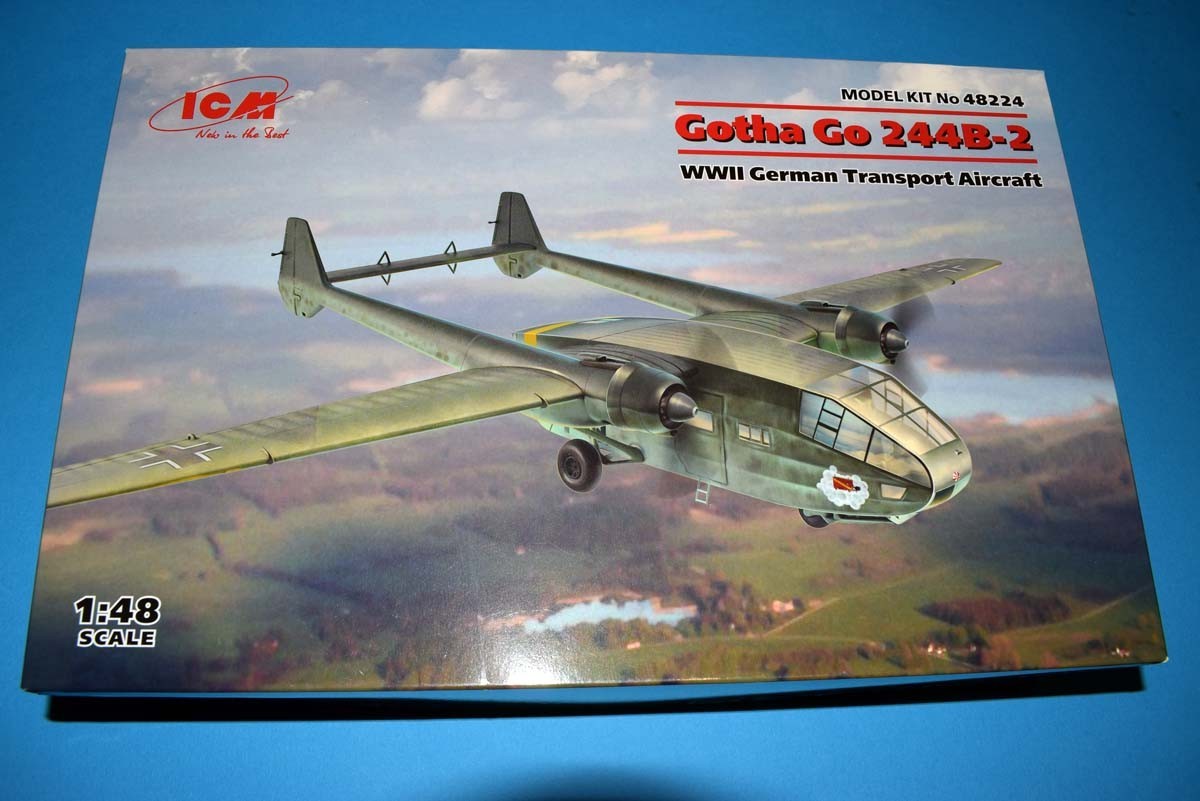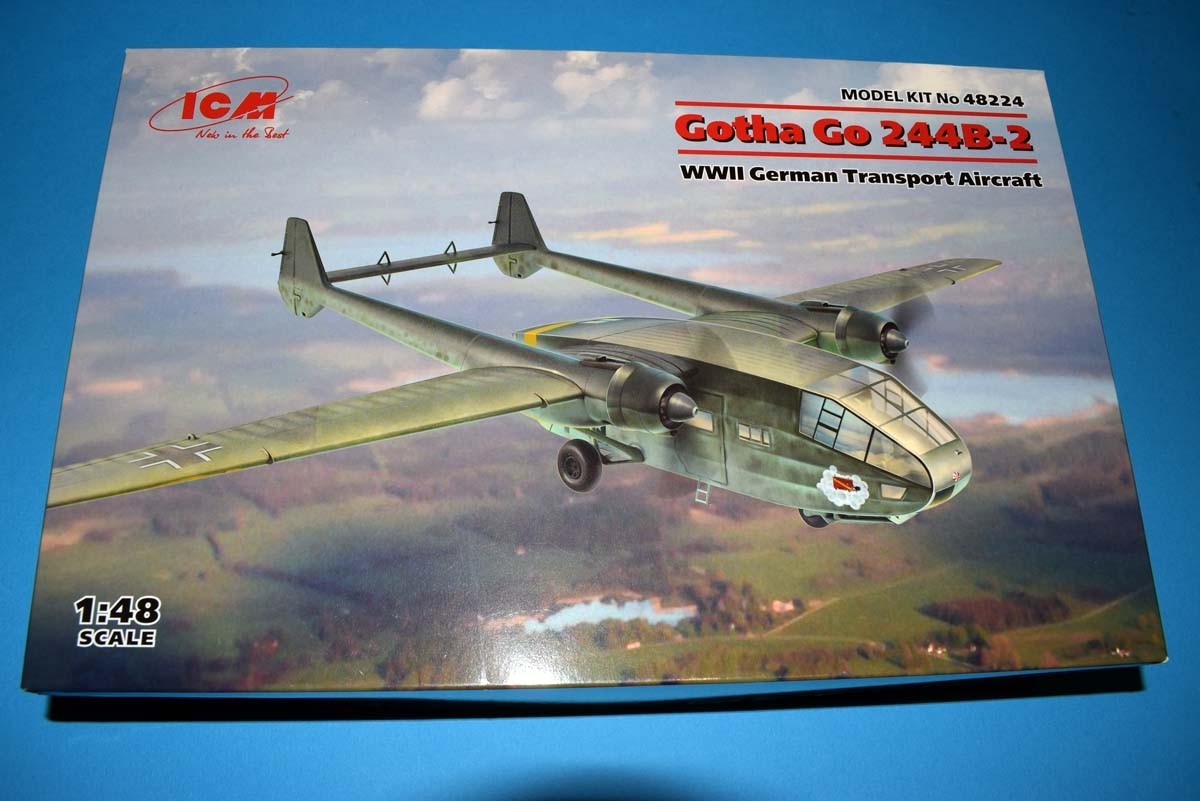
Introduction
The following introduction is taken from the ICM website:
Difficulties encountered in the use of cargo gliders and a shortage of aircraft to tow them led to the creation of a motorised version of the Go 242, the Go 244 transport aircraft. These medium-sized transport aircraft were converted Gotha Go 242 airframes of various modifications. Aircraft engines were installed in front of the tail beams, fuel tanks were mounted inside the aircraft, and the cockpit was equipped with the necessary equipment and instruments for flight. The aircraft engines were most often powered by trophy French Gnome-Rhone 14M engines. Defensive armament consisted of MG 15 or MG 81Z 7.9 mm machine guns. The Go 244B-2 modification was based on the Go 242B-2 airframe and, like the airframe, featured an original landing gear with oil shock absorbers. The Go 244 was in service with several Luftwaffe transport squadrons based in Greece and other countries. Later, these aircraft were used in flight schools and training centres
Review
This offering from ICM arrives in a flip top cardboard tray with a separate card lid. Inside the contents are packaged in 2 resealable plastic bags, the clear sprue is packaged in a third bag within the main 2 bags. The instruction booklet is loose in the box and contains the decal sheet. An examination of the parts reveals no obvious moulding issues of concern. I will say that some of the gates while not overly large, but may result in some issues when trying to cut them.
The Gotha model itself is for the most part a copy of the previous releases, with the only major internal difference being the rudimentary controls required for an aircraft that was a glider and was converted to powered flight. Moving to the exterior, the surface detail is very pleasing in my opinion. Engine nacelles were attached in front of the twin booms, and reasonable detail has been provided as regards the engine. The introduction states the the fuel was retained inside the aircraft, but from what I can find out - it was stored within the twin booms themselves. I could not find dedicated refuelling caps, and so your guess is as good as mine, but I do know that in a war setting I would not want to put the fuel anywhere near the crew or passengers, as the aircraft was not designed to resist any form of attack. It is my understanding that the rear of the fuselage had different openings depending on its purpose, this one with the tail section lifting up is a dedicated transport aircraft and it is my understanding that a different door set up was utilised for parachute rolls. The model itself is very pleasing, but ICM really need to get their head around covering harness detail. On a plus note, ICM has provided a template for cutting your own masks for the clear parts and this is something not many companies do. ICM has provided 2 finishing options:
Gotha Go 244B-2, 106th Special Purpose Battle Group (KGr.z.b.V. 106), Kirovohrad, 1942
Gotha Go 244B-2, Probably Hagenow, Germany, 1942
Conclusion
This offering from ICM is for the most part a pleasing offering, but those that like to add at least minimal detail will need to look at harness details and possibly some cockpit detailing as it is an area that I struggled to find covered well. They have made a reasonable go at providing named finishing options, which is also something that I approve of. I think that you will also need to look into refueling locations.

